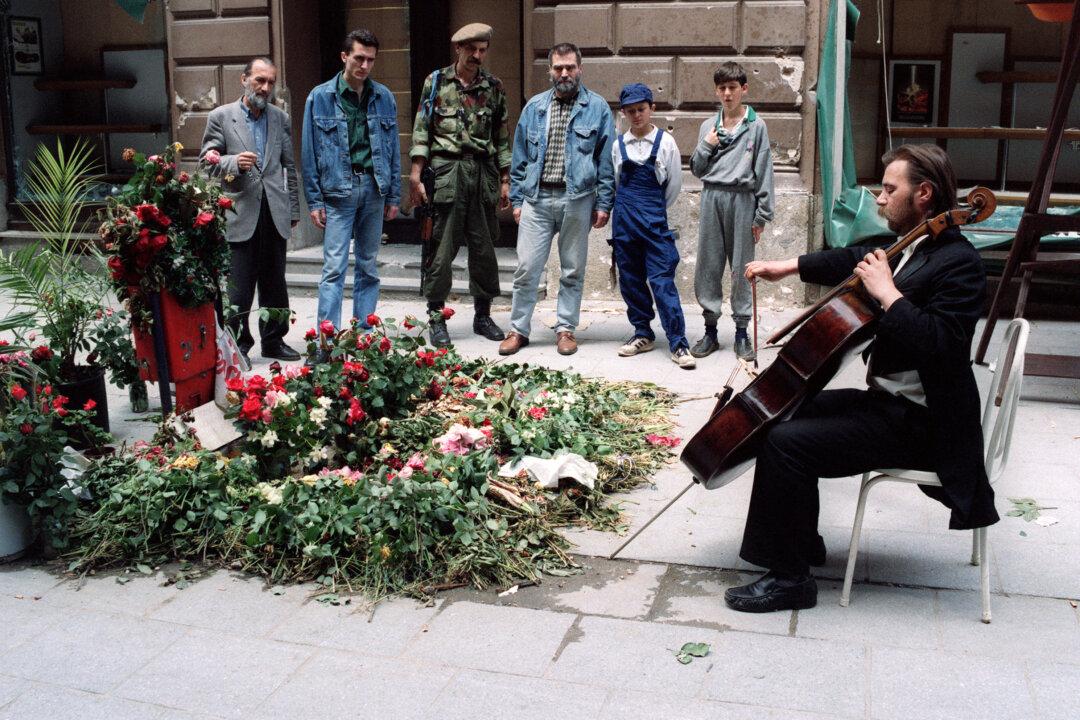It was May 28, 1992, the early days of the Bosnian War. Into the dust and debris of Vase Miskina Street in Sarajevo strode a strange figure, carrying an instrument case and impervious to the distant rumble of explosive shells battering the city. He wore a tuxedo, as though he was on stage at a posh concert hall instead of walking through a warzone where the only backdrops were the husks of bombed-out buildings.
The musician stopped in the middle of the hollowed-out marketplace, set up a plastic folding chair, and took his cello from its case. He seemed to be plucked from another world, a saner time, and dropped into the nightmare of the siege of Sarajevo like a falling star. The musician’s disheveled hair and sagging mustache stirred in the breeze as he placed the instrument between his knees. Surrounded by broken stone and twisted metal, his eyes deepened, and he began to play Albinoni’s Adagio in G minor.






